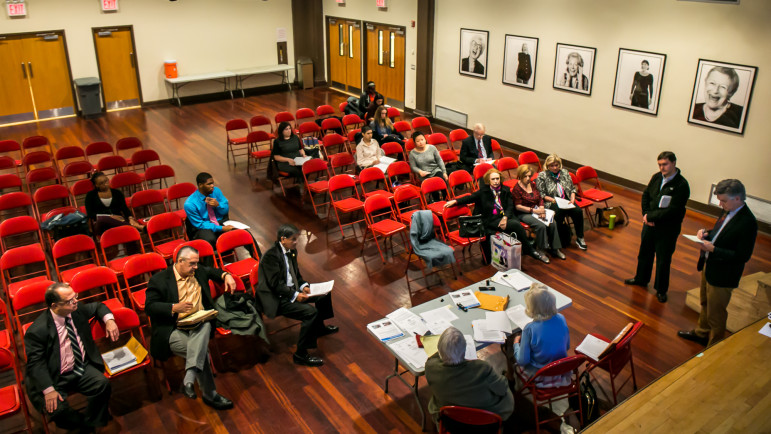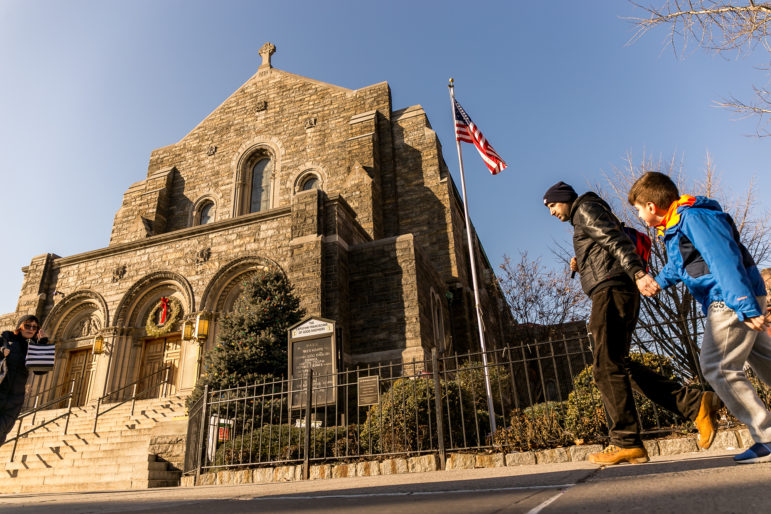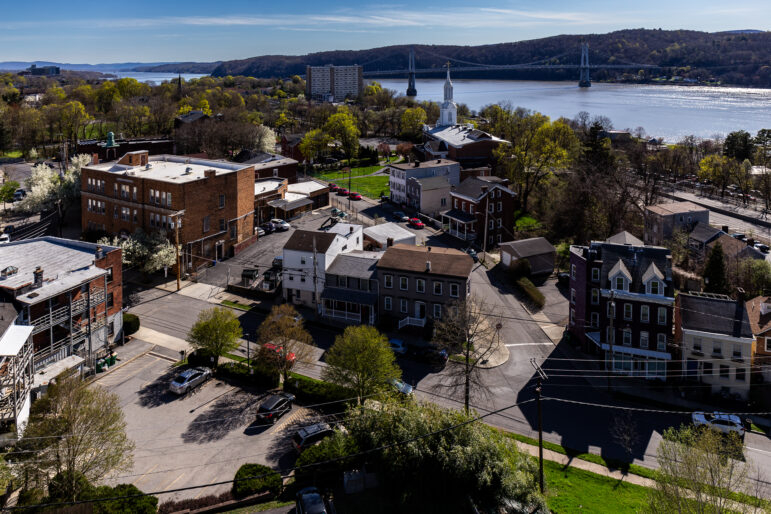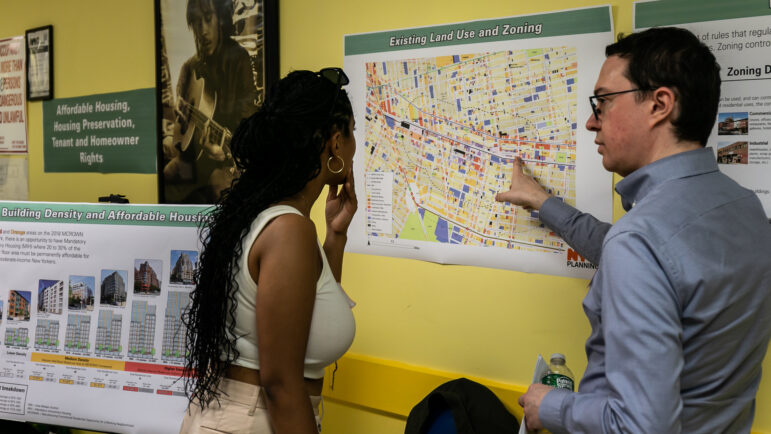
Adi Talwar
A community board meets in 2015 during the period when mandatory inclusionary zoning and 'zoning for quality and affordability' were under consideration.
On Election Day, New York City residents will have a chance to vote on three ballot measures. City Limits welcomes op-eds from anyone with a position on one or all of them. Let us know if you want to weigh in.
* * * *
New York City’s 59 community boards are repositories of high hopes, but they leave many people frustrated. People want them to stand for neighborhood self-determination and for grassroots democracy but criticize them either for having too much power to obstruct development or for failing to empower regular people to alter the course of neighborhood change.
So, it’s not surprising that proposals to reform them have gotten the attention of both of the city’s competing commissions charged with revising the City Charter, one announced by the mayor in February and the other created by the City Council in April. The mayor’s commission has proposed several reforms that will appear on the ballot on Election Day, November 6, including term limits for board members and the creation of a citywide Civic Engagement Commission, dominated by mayoral appointees, that would (among other things) develop the boards’ capacity to deal with technical policy questions. The council’s commission is still taking public input for potential proposals for a 2019 vote.
The term limits proposal has gotten more attention, but strengthening community boards’ technical capacity is the more important issue. The goal should not be to make community boards into technically expert decision makers, like little planning commissions, but to build on the boards’ strengths as forums where regular people can independently engage with, criticize, and pass judgment on the claims of experts. The mayor’s commission’s proposal misses the mark, but the council’s commission should propose steps that would both strengthen the boards’ technical capacity and maintain their independence from City Hall.
Community boards evolved from the 1950s to the 1980s, reflecting a desire to strengthen neighborhoods when they seemed to be under attack from urban renewal, as well as a desire to revitalize democratic participation at a time when politics seemed to be devolving into an alienated spectacle. The boards did not prove to be the solution to either of those challenges, but that doesn’t mean that they don’t perform an important function.
The one thing that boards are best at is providing a place where community members can come together to form a legitimate public opinion on questions that are too local for other forums such as high-profile elections or the news media. The boards do not have any power to make authoritative decisions, but their deliberations do matter because, at least some of the time, they develop the public opinion that elected officials must consider if they want to be reelected.
To be effective, boards must be able to handle technical material independently. The city’s land use process calls for the boards to review rezonings and sales of public land, often for affordable housing developments, and these are issues saturated with specialized jargon. But community board members don’t need to become urban planners or development experts. Instead, they need to develop what sociologists of science have called “interactional expertise,” the ability of people outside a specialized field to engage with the experts within that field and translate between it and other areas of knowledge – such as the knowledge that community members have of their own communities’ needs and priorities.
Grassroots members of a community board can and should develop this interactional expertise both through training and through experience on a board that maintains a culture valuing interactional expertise. The mayor’s Charter Revision Commission proposes to provide board with technical support through the Civic Engagement Commission. But this approach undermines the boards’ independence, because that commission would be largely appointed by the same mayor who backs many proposals before the boards.
The City Council’s charter revision commission should propose a more independent channel for technical support. Ideally, the boards themselves would have both the resources to choose their own sources of support and the motivation to do so wisely, but that would require changing the culture of many of the boards. In the meantime, the borough presidents are better situated to strengthen the boards than the mayor.
The mayor’s commission also proposes to establish term limits for community board members, saying this will help make the boards more fully representative of their communities. New immigrant groups and some other constituencies are often underrepresented on the boards now. Four of the five borough presidents have opposed this move, arguing that term limits would undermine the boards’ technical capacity by removing skilled people.
But long-serving board members are not necessarily either the main barrier to good representation or the main source of technical capacity, so term limits may not have much effect on either issue. It would be better to address each of these issues more directly, with mandates and supports for representative inclusiveness and for developing interactional expertise.
Tom Waters is a housing analyst for the Community Service Society and a resident of CB 8 in the Bronx.









One thought on “CityViews: Term Limits Aren’t What Will Strengthen the City’s Community Boards”
In 1945 locals from Manhattan went to BP Robert Wagner, Jr., to complain about City Agencies riding roughshod over their neighborhoods. They were doing what they wanted without any prior notice let alone consultation with the residents or businesses. It might have involved urban renewal but it was the City SOP that irked them. When Wagner got to be Mayor he remembered.